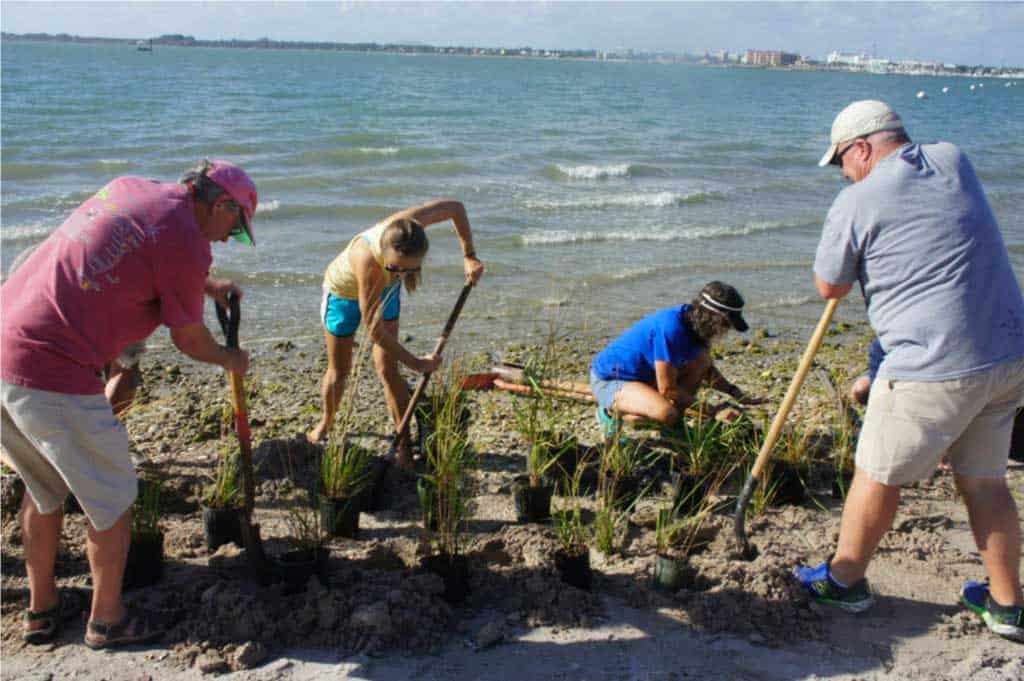Blog 3 of 4
This blog is one in a series focused on the impact of coastal restoration in mitigating the effects of pollutant runoff in vulnerable waterways, leading to harmful algal blooms. These environmental organizations, supported by The Scotts Miracle-Gro Foundation, are on the front lines of our nation’s water quality issues. This series highlights their important work.
At the Ocean Research & Conservation Association (ORCA), our focus is on applied rather than academic science. We seek real-world solutions to environmental challenges and then endeavor to get the community involved in implementing those solutions. Our Living Lagoon Program is one such effort that focuses on involving students and volunteers in improving water quality in our local estuary, the Indian River Lagoon, by restoring living shorelines.
The Indian River Lagoon is a 156 mile-long estuary along the east coast of Florida that has faced numerous challenges from pollution, including fish kills, toxic algae blooms, red tides and many more. In healthy shorelines, water flowing off the land is naturally filtered and cleansed of pollutants as it flows through mangrove forests and marsh grasses. However, where these natural filtration systems have been removed and replaced with hardened seawalls or simply eroded due to poor land management, water quality is negatively impacted. Restoring living shorelines is critical. This restoration involves growing and planting native shoreline vegetation and creating breakwaters in the shallows to provide buffer zones that will stabilize shorelines, protect against storm damage and help recreate vital habitat.
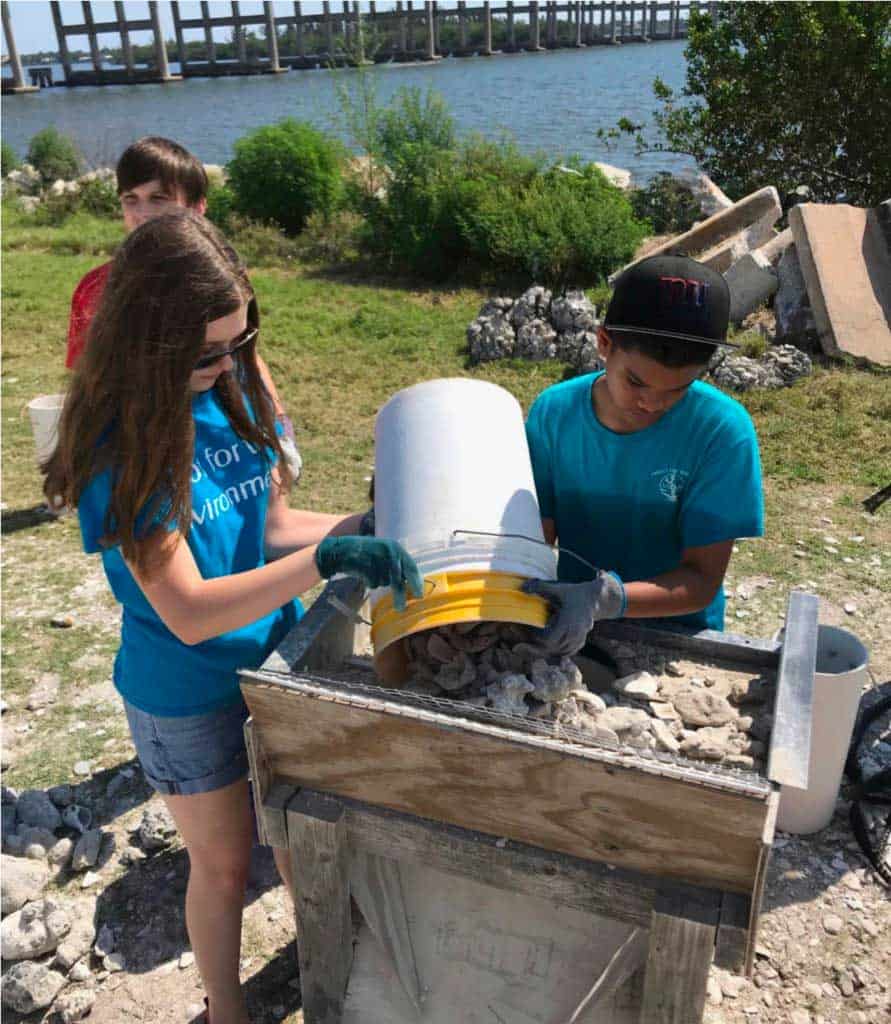
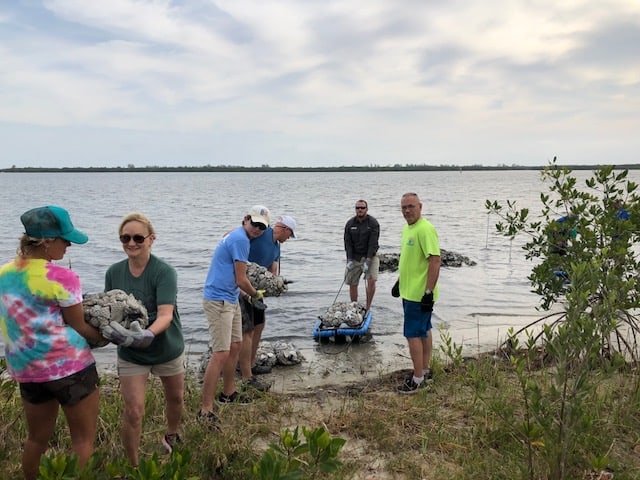
Since 2017, ORCA’s Living Lagoon Program has provided hands-on science experiences to more than 700 students. These students have helped raise over 2,000 native shoreline plants in schoolyard nurseries and filled hundreds of fossilized shell bags, all of which have been utilized in living shoreline restoration projects in the Indian River Lagoon.
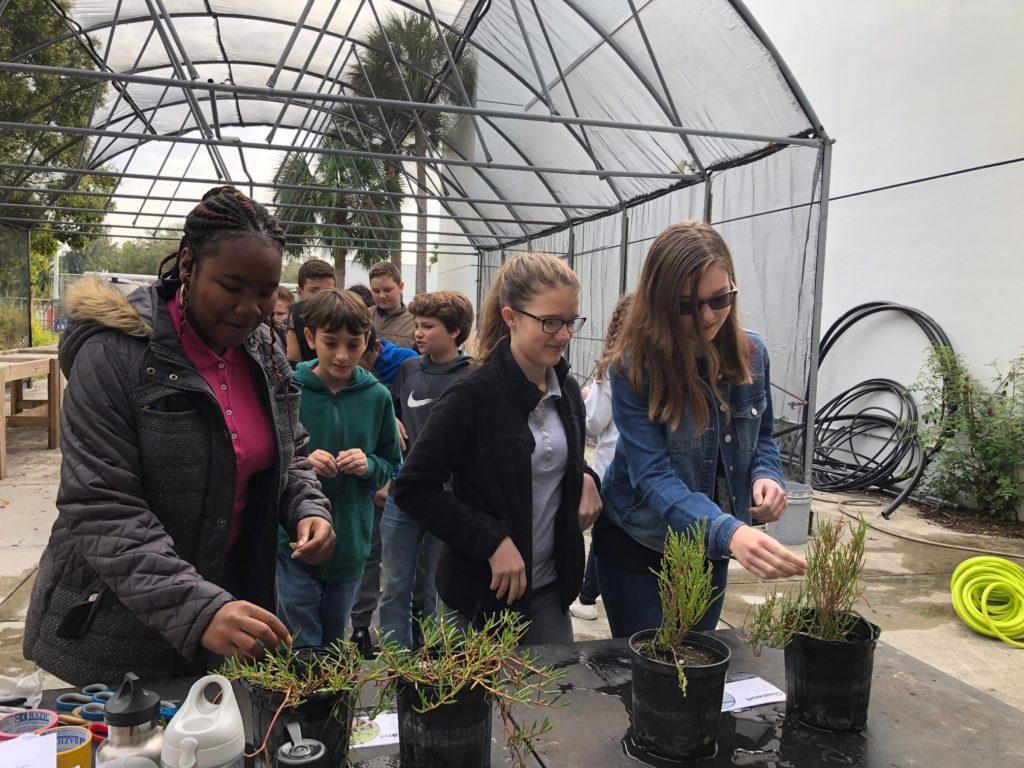
Students from Forest Grove Middle School learn about characteristics of different shoreline native plants
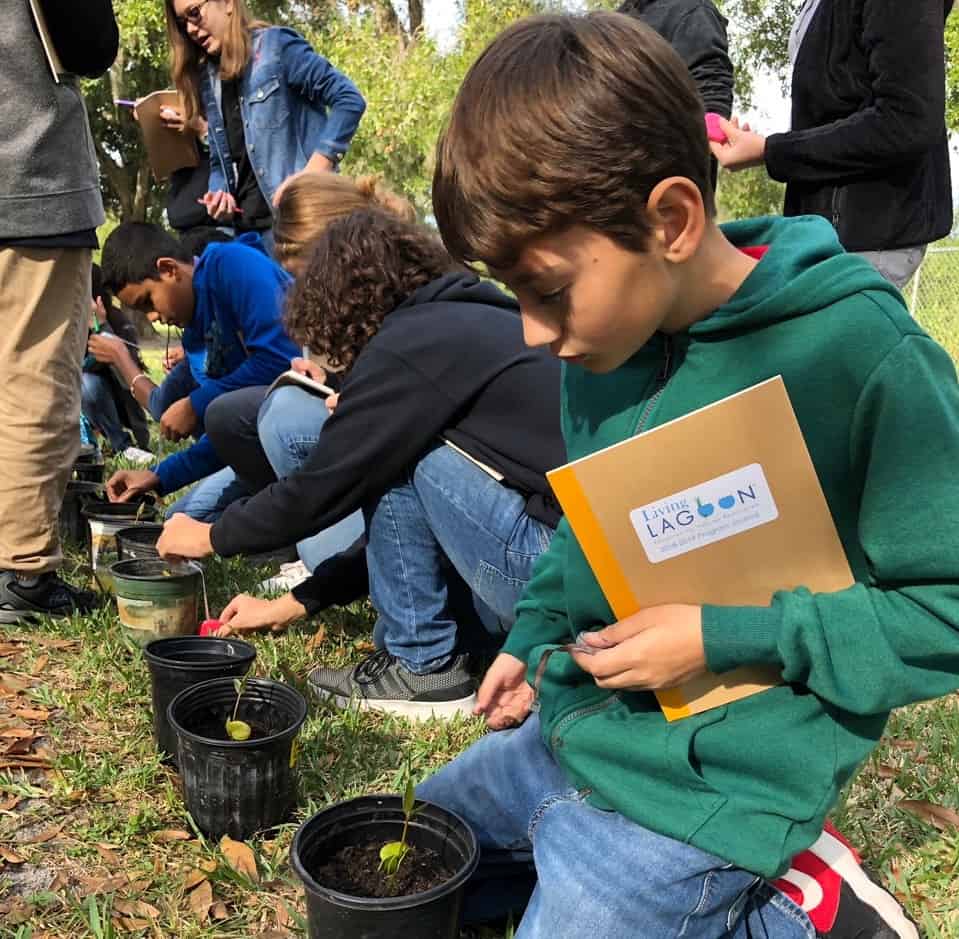
These living shorelines, once installed, are monitored by students and ORCA team members over several years to document transplant survival, growth rates and changes in water quality and diversity. This is a critical component of the effort, as we hope it will provide much needed scientific documentation of the true value of living shorelines. This experiential education program has allowed us to instill environmental stewardship within the hearts of young members of our community, while also helping to preserve our local aquatic ecosystem.
